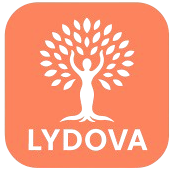Many people notice that their body changes throughout the month — mood, energy, appetite, sex drive. It’s easy to think only the period “counts,” but the truth is, your whole cycle is alive and shifting. Your ovaries, brain, and uterus constantly communicate through hormones like estrogen, progesterone, FSH, and LH.
In the first half of the cycle, leading up to ovulation, estrogen rises. You might feel more energetic, clear-headed, social, even radiant. After ovulation, progesterone takes the lead. It often brings calm and focus — but sometimes bloating, fatigue, or sensitivity too.
Feeling these shifts doesn’t mean anything’s wrong; it’s a sign your body is working. Hormones don’t just affect your uterus — they influence your brain, gut, skin, and joints. That’s why you can feel like “different versions” of yourself throughout the month.
Alma’s tips:
Instead of fighting the changes, start tracking them. Note how you feel each week — soon, you’ll see a rhythm. That rhythm is your body’s way of guiding you: rest when it asks, create when you can. Your body isn’t unpredictable; it’s cyclical — and it’s on your side.
